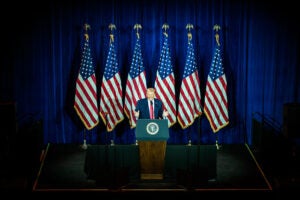
Congress needs to consider legislation that would require industry to share information about cyber-attacks on their networks so that the nation can better combat against cyber threats, a Republican senator said on Wednesday. Sen. Mike Rounds (R-S.D.), the ranking member on the Cyber Subcommittee of the Senate Armed Services Committee, quoted testimony to the panel earlier this year by Army Gen. Paul Nakasone, commander of U.S. Cyber Command and director of the National Security Agency, who discussed foreign actors conducting…

 By
By 











